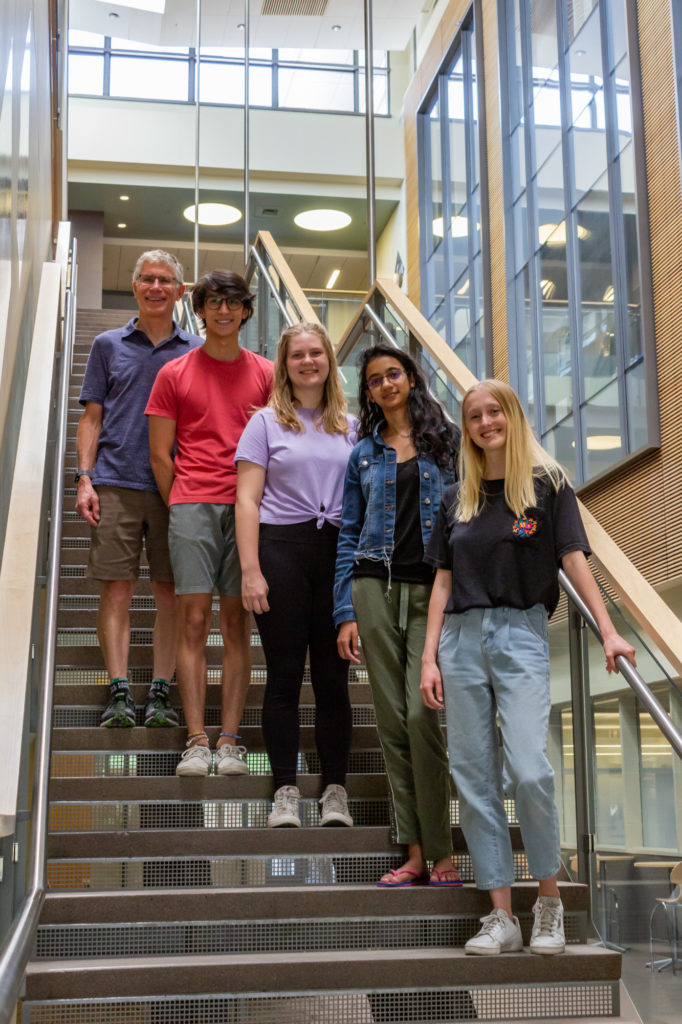
When Chemical and Biological Engineering Professor Ken Reardon was an undergraduate, working with researchers influenced his decision to attend graduate school and start his career path. But there was something missing from his experience: the big picture.
“When I was an undergraduate student, I was fortunate enough to work in a research group,” Reardon said. “I loved it, and it had a lot to do with why I went to graduate school, but I never knew what the point of the whole project was.”
Now, Reardon is overseeing a $5.1 million Department of Energy project that is giving selected undergraduates a holistic view of research, in real time.
“This is the real thing,” he said. “Our students are eager for this kind of opportunity to learn about their field and things that are interesting to them but not in a classroom environment.”
Reardon’s team includes Susan De Long, associate professor in civil and environmental engineering; Joshua Chan, assistant professor in chemical and biological engineering; and Jason Quinn, associate professor in mechanical engineering, as well as collaborators at the National Renewable Energy Laboratory, South Dakota School of Mines and Technology, and University of California, Irvine. Their goal is to turn organic waste into renewable energy.
This summer, Reardon, De Long and Chan advised four undergraduates, as part of an unusual educational component of the grant from the Department of Energy’s Bioenergy Technologies Office. One additional student was mentored at the South Dakota School of Mines and Technology. Four or five new students will be selected from applicants each of the next four summers, as the project continues.
In addition to mentoring by their faculty advisers, each undergraduate was mentored daily by a Ph.D. student. They learned a lot about graduate school and research in general, and specifically how food, manure and agricultural waste can be converted into biofuels.
“We want to make less waste but also make fewer greenhouse gases, which is what happens when you just throw this waste into a landfill,” Reardon said.
Despite a delayed start due to the pandemic, Reardon said the project is on track for making the advances they had planned. Especially encouraging is that they’ve found ways to minimize methane and CO2 production.
Meanwhile, the students – including the graduate mentors – are grateful for the experience.
“It has been great,” said Jorge Rico, a Ph.D. student in the Department of Civil and Environmental Engineering who mentored two of the four undergraduates. “Definitely a great learning experience from both sides.”
Rico is working to better understand and optimize the microbial processes involved in anaerobic digestion.
“Mentoring is extra work, but I enjoy it and I’m always happy to share knowledge and experiences,” he said.
Lessons learned
By attending group update meetings, the students witnessed how the researchers across institutions communicated with each other and worked together to solve problems. Emma Barrett, a CSU chemical and biological engineering student who was mentored by Reardon and Danielle Bartholet, said she will apply these lessons in communication and problem-solving to her studies and career.
“Getting the chance to communicate with so many individuals working towards a common goal has been invaluable,” Barrett said. “Learning how to work around problems will be a skill I’ll carry with me for the rest of my life.”
Based on his experience this summer, Daniel Hidalgo-Argote, a CSU chemical and biological engineering student who was mentored by Chan and Parsa Ghadermazi, has decided to apply to graduate school.
“I have found a passion in the field of research to explore what is unknown and to challenge myself to keep learning,” Hidalgo-Argote said.